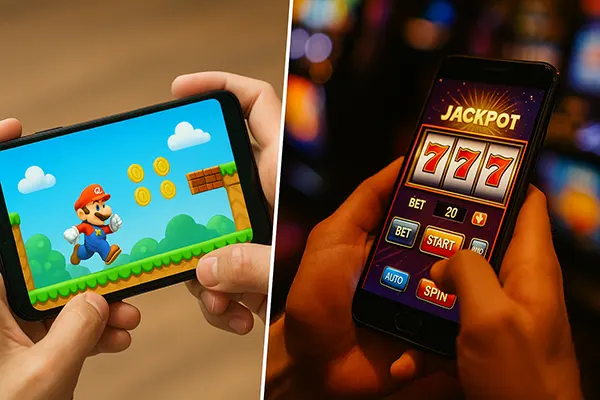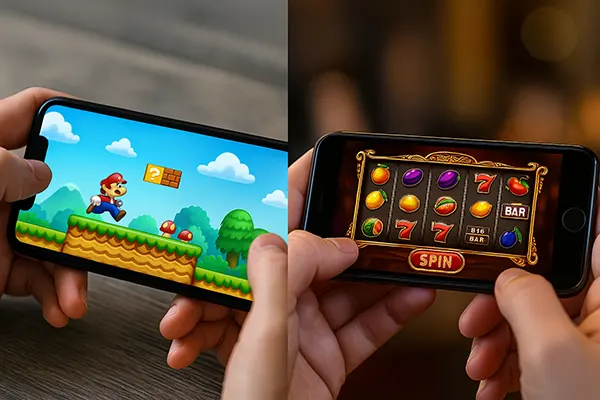
The Psychology of Gaming and Gambling – Why We Keep Playing
Human fascination with games, whether mobile or casino-based, is deeply tied to our psychology. The excitement of chance, the satisfaction of progress, and the pursuit of reward activate the same neural systems that respond to pleasure and achievement. In 2025, as gaming design continues to evolve, understanding why we keep playing has become more relevant than ever for both players and developers.
The Reward Systems That Keep Players Hooked
Every game, from mobile puzzles to online blackjack, is built on the principle of reward. Players receive small victories — a win, a level-up, a visual explosion — which trigger dopamine release in the brain. This neurochemical reaction creates a sense of pleasure that motivates us to play again. It’s the same system that drives social media engagement or even habit formation in daily life.
Modern developers use “variable reward schedules,” a concept borrowed from behavioural psychology. In this system, rewards come unpredictably, making players check and play repeatedly in anticipation of the next positive outcome. Slot machines, for example, use this principle through randomised spins and near-miss results that convince the player to continue. Analytical studies of game environments, including resources found at https://mega888games.com/, demonstrate how interface design, pacing, and reward frequency influence long-term engagement and player motivation.
In mobile gaming, this mechanism is often masked under friendly visuals and “daily rewards.” Progress bars, streaks, and badges simulate accomplishment, even when rewards are virtual. These design tactics build engagement loops — users play, get rewarded, and return for more.
How Design Influences Subconscious Engagement
The subtle use of colours, sounds, and animations plays a critical role in subconscious immersion. Bright visuals paired with quick sound feedback create a positive emotional cycle, reinforcing the desire to interact. Casino game designers use red and gold tones, which psychologically associate with energy and wealth, while mobile developers prefer soft hues to evoke comfort and trust.
Another significant design feature is “progression illusion.” Even when outcomes are random, games give the player a sense of control or advancement. Progress bars, levels, and achievements convince users that they are improving — even when luck is the real factor. This keeps motivation high and creates the illusion of mastery.
These psychological hooks are not accidental. Companies invest heavily in behavioural research, hiring cognitive scientists to study player retention and motivation. As a result, the design of games today is not just about entertainment but about engineered engagement.

From Excitement to Compulsion – Recognising the Signs
The thin line between fun and compulsion becomes evident when playing stops being voluntary. Gambling addiction is now officially recognised as a behavioural disorder, and its symptoms often mirror those of substance addiction. The brain adapts to constant reward stimuli, demanding more frequent play to achieve the same level of satisfaction.
Common signs include increased time spent playing, emotional distress when not engaging, and financial strain due to gambling losses or in-game purchases. Players may rationalise their behaviour as “just one more round,” but this rationalisation often hides deeper dependency patterns.
Prevention begins with awareness. Responsible gambling and mindful gaming initiatives promote setting limits, using cooling-off periods, and tracking time spent in games. Tools such as self-exclusion options and AI-based monitoring systems have become essential parts of the modern gaming environment in 2025.
What Psychologists Say About Gaming Behaviour
Recent studies conducted by institutions such as the University of Cambridge and the American Psychological Association reveal that gaming addiction activates similar brain regions as drug dependence. According to clinical psychologist Dr. Emily Harris, “The challenge is not the game itself but the illusion of control it creates. Players believe they are making strategic decisions when, in fact, the outcomes are random.”
Experts recommend promoting transparency in game design — for instance, disclosing odds and implementing reward caps. Ethical design helps prevent exploitative mechanics that rely on impulsive behaviour. Many developers in 2025 have started applying these principles voluntarily to maintain public trust.
Ultimately, both mobile and casino games rely on the same psychological triggers — the pursuit of reward, the illusion of progress, and the emotional stimulation of risk. Understanding these mechanisms allows players to enjoy games responsibly, without falling into harmful cycles.




